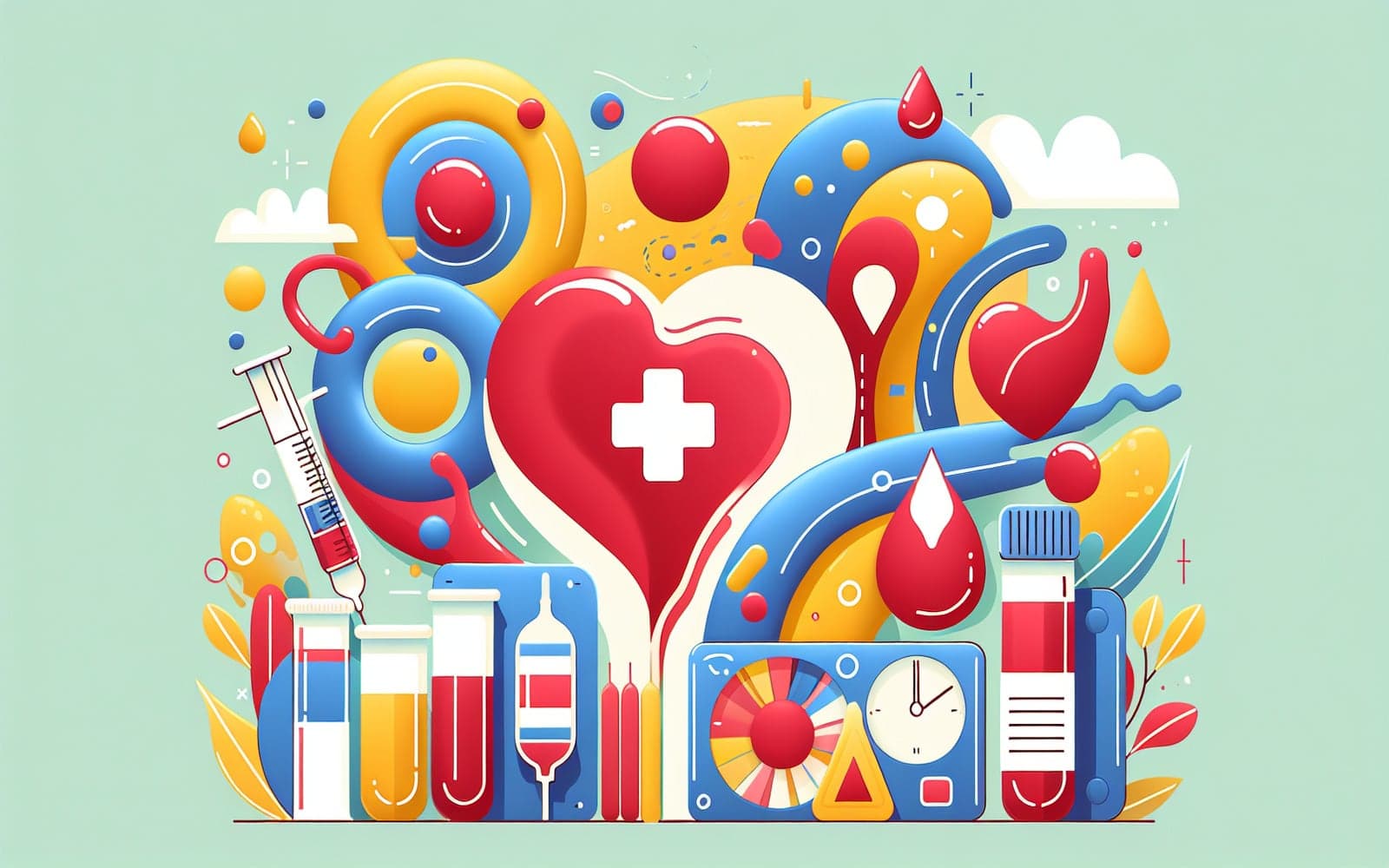Are You at Risk for Blood Clotting Problems?
Are You at Risk for Blood Clotting Problems?
Know Your Risk
Blood clotting disorders can affect anyone, but certain factors can increase your risk. Understanding these risk factors can help you take proactive steps to protect your health and know when to seek medical advice.
Contents
- Genetic Factors: It's in Your DNA
- Lifestyle Factors: Choices That Matter
- Medical Conditions: When Your Body Works Against You
- Age and Gender: Factors You Can't Control
Genetic Factors: It's in Your DNA
Some blood clotting disorders are inherited. If you have a family history of excessive bleeding or blood clots, you may be at higher risk. Specific genetic mutations, like Factor V Leiden, can increase your chances of developing blood clots. However, having these genes doesn't guarantee you'll have problems - it just means you need to be more vigilant.
Lifestyle Factors: Choices That Matter
Certain lifestyle choices can affect your risk of clotting problems. Smoking, for example, can increase your risk of developing blood clots. Being overweight or obese also raises your risk. Lack of physical activity, especially during long periods of sitting (like on long flights), can contribute to clot formation. On the flip side, excessive alcohol consumption can interfere with clotting and increase bleeding risk.

Medical Conditions: When Your Body Works Against You
Several medical conditions can increase your risk of clotting disorders. These include cancer, heart disease, and autoimmune disorders like lupus. Pregnancy also temporarily increases clotting risk. Certain medications, including birth control pills and hormone replacement therapy, can affect clotting. Always inform your doctor about all medications you're taking.
Age and Gender: Factors You Can't Control
As you get older, your risk of developing blood clots increases. This is partly due to decreased mobility and increased likelihood of other health conditions. Gender also plays a role - women have a higher risk of certain clotting disorders, especially during pregnancy and when taking estrogen-containing medications.
FAQs
Does stress affect blood clotting?
Chronic stress may increase inflammation, potentially affecting clotting.
Can diet impact my clotting risk?
Yes, especially for those on blood thinners like warfarin.
Are athletes at lower risk for clots?
Generally yes, but injuries or dehydration can increase risk.
Can air travel really cause blood clots?
Yes, especially on long flights without movement.
Do blood types affect clotting risk?
Some studies suggest a link, but more research is needed.
Knowledge is Power
Understanding your risk factors empowers you to make informed decisions about your health.
Additional References
- Heit JA, Spencer FA, White RH. The epidemiology of venous thromboembolism. J Thromb Thrombolysis 2016; 41:3.
- Cushman M. Epidemiology and risk factors for venous thrombosis. Semin Hematol 2007; 44:62.
This article has been reviewed for accuracy by one of the licensed medical doctors working for Doctronic.











